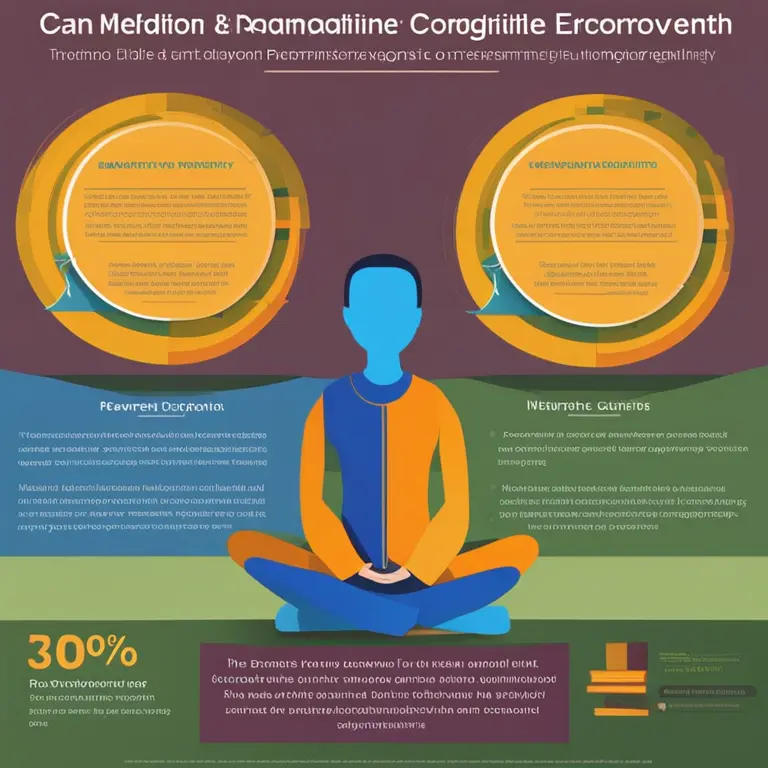
The Longevity of Meditation Benefits
Delve into the permanence of meditation benefits and discover how this ancient practice can lead to enduring cognitive and physiological enhancements.
article by Hina Kurosawa
The Foundation of Meditation
Meditation has ancient origins, yet today it is supported by modern science as a powerful tool for enhancing mental and physical well-being. Practitioners from all walks of life find solace in its various forms, whether it be mindfulness, transcendental, or focused meditation. While the act of meditating can instill a sense of immediate calm, many are curious about the lasting impact of this practice: Are the benefits one experiences temporary, or can they cement themselves into the fabric of our being?

Neuroplasticity and Lasting Change
Neuroplasticity is the brain's ability to form and reorganize synaptic connections, essentially rewiring itself. Regular meditation has been linked to significant neuroplastic changes. These changes, particularly in regions involved with emotion regulation, attention, and self-awareness, suggest a potential for enduring benefits. However, like all habits, consistency is key. The permanence of meditation's impact often correlates with sustained practice.

Cognitive Improvements: A Permanent Shift?
Improvements in cognitive functions such as attention, memory, and executive decision-making have been attributed to consistent meditation. Long-term meditators often report these benefits persisting beyond their practice sessions. Recent studies have shown that prolonged meditation can induce lasting cognitive enhancements, though individual experiences may vary based on practice duration and technique.

Emotional Well-being and Resilience
The emotional equilibrium reached through meditation is another aspect where longevity of benefits is debated. Regular meditators tend to develop greater emotional resilience, an effect that can extend well beyond the meditation cushion. By repeatedly engaging in meditative practices, individuals may reframe their responses to stress and emotional disturbances, potentially creating permanent positive changes in their day-to-day emotional responses.

Physiological Effects That Last
On a physiological level, meditation has been shown to lower blood pressure, reduce stress hormone levels, and improve immune function. These effects can contribute to a healthier body over time. Long-term practitioners may experience lasting health improvements; however, these results are often linked to a continuous, rather than sporadic, meditation practice.
Integration into Daily Life
The true testament to the permanence of meditation benefits lies in the integration of its principles into daily life. When meditation fosters mindfulness that influences behavior, attitudes, and reactions, its benefits can be enduring. Practitioners often find that the calm and insight gained from meditation have a ripple effect, influencing their interactions and overall lifestyle in a persistent manner.
Personal Commitment and Variability
Finally, it is essential to emphasize that the permanence of meditation benefits is influenced by personal commitment and varies from individual to individual. The practice is not a quick fix but a journey of personal development. The benefits potentially become permanent when the principles of meditation are deeply woven into the fabric of one's daily life.
Published: 1/14/2024
Modified: 1/15/2024
More predictions
Come back here soon to learn more about yourself and your future


Easing Loneliness with Mindfulness Meditation
Explore how mindfulness meditation can provide solace and connection to alleviate the feelings of loneliness.


Discovering Life with Meditation Mantras
Delve into the transformative power of meditation mantras to harmonize your mind, body, and spirit for a tranquil existence.


Mindfulness Meditation Basics for First Graders
Introducing foundational mindfulness meditation practices to instill calm and focus in first-grade students.